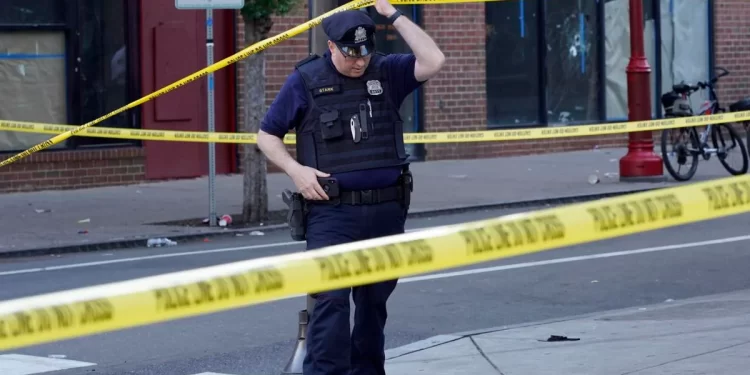By Anthony Hennen | The Center Square
(The Center Square) – Philadelphia’s attempt to create new gun restrictions was once again defeated by the judicial branch striking down a new city policy.
In response to a September shooting that killed Parks & Recreation worker Tiffany Fletcher, Mayor Jim Kenney signed an executive order banning guns and other weapons from city recreational facilities.
“We will not tolerate the endangerment of children and families while they are in the care of our treasured community spaces, and we must do everything we can to protect the public, as well as the dedicated staff that make these facilities run,” Kenney said in a statement. “Banning guns from indoor and outdoor recreational facilities throughout our city is a critical step to protecting our public spaces and preventing the senseless violence that claimed Tiffany Fletcher’s life.”
As city officials have struggled to rein in a spike in murders in recent years, those recreational areas have not avoided violence. Almost 200 “reported incidents of gun violence” have happened, along with “dozens of other incidents of violence with a deadly weapon.”
The executive order, however, did not survive a full week. A lawsuit brought by Gun Owners of America, a pro-Second Amendment organization, challenged the executive order soon after it was announced.
On Monday, a Philadelphia Common Pleas Court judge issued a permanent injunction on the order, citing the state’s preemption law. That law prohibits local governments from passing gun-control laws that are more strict than state law.
The order is not the first Philadelphia gun control law to get struck down by the courts. The city has tried to pass laws on reporting stolen firearms, limiting the number of gun purchases, annual renewals of gun permits, and others, all of them falling afoul of the preemption law.
While some local officials want stricter gun laws, existing gun laws have not been enforced in recent years. As The Center Square previously reported, Philadelphia has seen fewer gun-related cases go to trial or end in a guilty verdict compared to the state average.
When looking at noelle pros cases, where the state does not pursue a gun-related case, Philadelphia has gone from 7% in 2015 to 21% in 2020. The statewide average during the same time increased from 7% to 12%.
Though state law prevents more gun control laws locally, Philadelphia’s choice not to enforce gun laws already on the books is a local decision.



